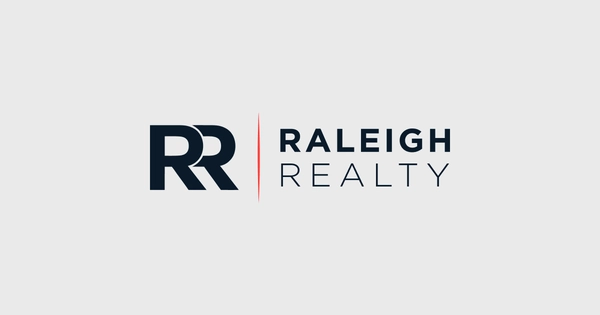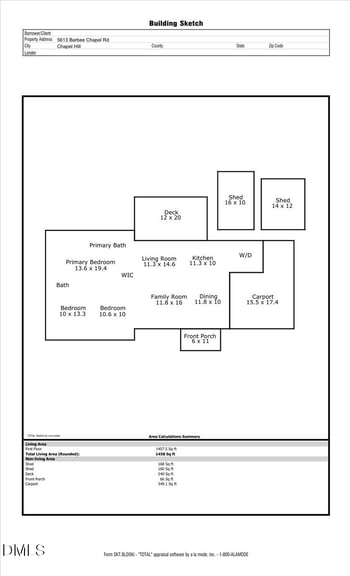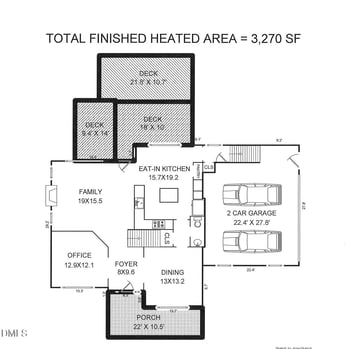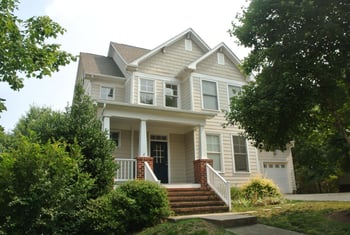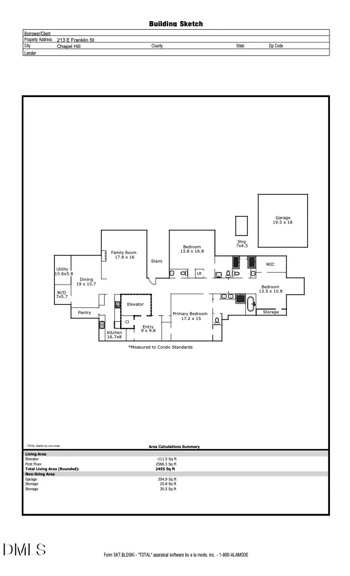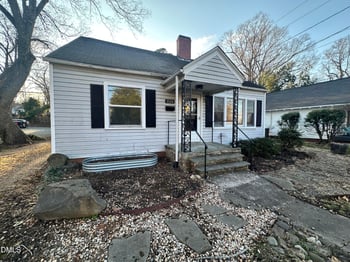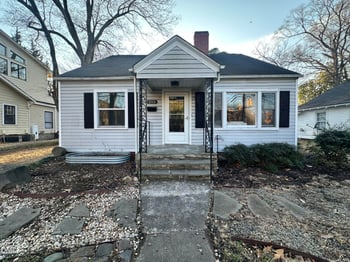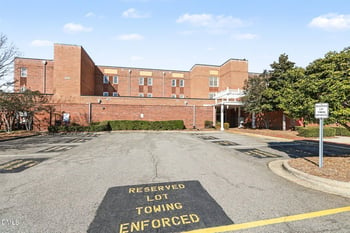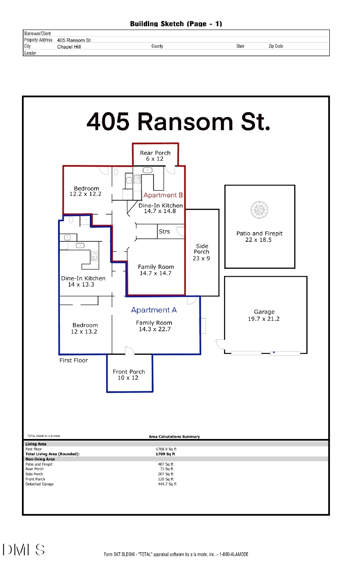What's the Cost of Living in Chapel Hill, NC?
Is Chapel Hill, NC, an expensive place to live? If you are moving to Chapel Hill, let's explore the cost of living.
Nestled in the heart of North Carolina's Research Triangle, Chapel Hill is one of the South's most sought-after places to call home. This picturesque college town, anchored by the prestigious University of North Carolina at Chapel Hill, is best known for its tree-lined streets, southern hospitality, and historic charm.
From the iconic Franklin Street buzzing with students and locals to the serene Carrboro farmlands just minutes away, Chapel Hill offers an excellent quality of life.
But Chapel Hill is far more than just a university town. It's a thriving community where world-class medical research happens blocks away from farmers' markets, and where you can catch a Carolina basketball game one evening and attend a symphony performance the next.
The city has consistently earned recognition as one of the best places to live in America, thanks to its exceptional schools, prime real estate, abundant green spaces, and thriving job market that has kept residents here for decades.
This unique combination of amenities, culture, and opportunity naturally raises an important question: What does living in this vibrant community cost? Whether you're a prospective UNC student, a tech worker eyeing opportunities in Research Triangle Park, or a family searching for a safe place to live, understanding the financial landscape is crucial for making an informed decision.
While you'll pay a premium compared to many North Carolina cities, you will have access to community amenities not offered anywhere else. Chapel Hill delivers excellent value from top-rated public schools and world-class healthcare to cultural events and outdoor recreation opportunities.
This comprehensive guide will explain exactly what it costs to live in Chapel Hill, helping you determine whether this exceptional community aligns with your financial goals and lifestyle aspirations.
Let's dive into the cost of living and why Chapel Hill would make an excellent place to call home.
1. Overall Cost of Living in Chapel Hill
Chapel Hill's cost of living is 6% higher than the national average, making it more expensive than many North Carolina cities but still more affordable than major metropolitan areas like Charlotte or Raleigh's premium neighborhoods.
Several factors contribute to this higher cost of living, including the presence of UNC Chapel Hill which creates a constant demand for housing from students, faculty, and staff, while the university's prestigious reputation attracts top-rated businesses and hardworking business professionals.
The city's proximity to Research Triangle Park means many residents can access high-paying jobs in biotechnology, pharmaceuticals, and technology while enjoying Chapel Hill's unique community character. It's prime location and access to world-class amenities are part of what make living costs higher.

The slightly elevated costs are often offset by the area's high quality of life, excellent healthcare facilities, and strong job market. Residents often find that while they pay more for certain expenses, they save money in other areas such as entertainment, transportation, groceries, and healthcare.
Here are some typical expenses and cost of living averages in Chapel Hill, NC:
| Cost of Living Item | Average Price in Chapel Hill, NC |
| Energy Bill | $188.94/month |
| Phone Bill | $178.09/month |
| Loaf of Bread | $3.98 |
| Gallon of Milk | $4.73 |
| Doctor's Visit | $166.23 |
| Dentist Visit | $135.69 |
| Veterinary Visit | $72.88 |
*Data was sourced from Payscale.
2. Median Household Income
Chapel Hill residents enjoy a median household income of $85,825, which is significantly higher than the North Carolina state average of $69,904. This strong earning potential helps offset the increased cost of living and reflects the area's educated workforce, many of whom work in healthcare, education, research, and technology sectors.
With a per capita income of $50,216, many Chapel Hill residents are typically offered competitive salaries. Featuring high-paying job opportunities, it is no wonder that Chapel Hill has one of the lowest unemployment rates in the state at 3.0%.
3. Housing Costs in Chapel Hill
Housing represents the largest expense for Chapel Hill residents, and it's where the city's premium is most noticeable. Housing costs in Chapel Hill are 16% higher than the national average.
The real estate market in Chapel Hill is highly competitive and is currently a seller's market meaning there are more buyers than there are homes. The median sale price in Chapel Hill is $925,072 and the average price per square foot is $315. Most homes sell after sitting an average of 51 days on the market.
For renters, Chapel Hill offers various options at different price points. The average apartment rent in Chapel Hill is $1,801. The rental market varies significantly by neighborhood and proximity to campus.
Chapel Hill is home to beautiful neighborhoods that range in price. Whether you are searching for premium living to budget-friendly options, there is a community in Chapel Hill to meet your lifestyle and needs.
Chapel Hill's most expensive neighborhoods offer luxury amenities, prime locations, and often golf course or nature access:
Meadowmont
Meadowmont stands out as one of Chapel Hill's most prestigious neighborhoods, with a median list price of $1,361,300. Meadowmont ranks among the most expensive neighborhoods for rentals as well.
Governor's Club
Governor's Club is another premium neighborhood known for its upscale housing and convenient location. This member's only country club is a gated community and features a golf course.
.png)
4. Utilities
Utilities are essential to consider when planning your next move because they must be turned on before moving in. Utility costs in Chapel Hill are 9% lower than the national average and are an area where residents can catch a break financially.
Providing some relief from higher housing costs, utility costs normally consist of electricity, gas, water, and trash services. The good thing about living in North Carolina is that the moderate climate helps keep heating and cooling costs reasonable compared to more extreme climates.

Water
Orange water and sewer authority (OWASA) is the primary provider of water and sewer services in Chapel Hill, North Carolina. OWASA is committed to delivering safe water to the Carrboro-Chapel Hill area and the Univerisity of North Carolina at Chapel Hill.
Inside town limit rates are as follows and are priced per 1,000 gallons:
| Base Rate | $26.33 |
| 1-9,999 | $7.73 |
| 10,000-14,999 | $12.48 |
| 15,000 and over | $15.61 |
*Data sourced from the Town of Chapel Hill.
Electricity
The leading provider of electricity around Chapel Hill, North Carolina, is Duke Energy. Its goal is to provide the most energy-efficient services and net-zero carbon emissions by 2050. They are also investing in significant electric grid enhancements and energy storage.
Waste management
The town of Chapel Hill, NC, provides trash and yard trimmings pick up weekly for residents within the town limits. This service is included in property taxes, so no additional fees are billed, and there is no account to set up.
Recycling services are through the Orange County Solid Waste Management Department. One trash cart is provided at no charge to residents, and an additional trash cart can be purchased for $60. Lastly, residents may also purchase a yard trimmings cart for $50.
5. Transportation
Transportation costs in Chapel Hill are 5% lower than the national average and consist of bus fares and gas prices. Individual pricing depends on your lifestyle and commuting needs.
The town of Chapel Hill is working on improving the convenience of travel along with safety. They are working on a few aspects: sidewalks, streets, trails and greenways, and reducing traffic.
The city benefits from:
- Public Transportation: Chapel Hill Transit provides free bus service throughout the city and to nearby Durham and Carrboro
- Walkable/Bikeable Areas: Many neighborhoods, especially near downtown and campus, are pedestrian and bicycle-friendly
- Parking: Generally less expensive than major cities, though campus-area parking can be challenging
- Gas Prices: Typically align with North Carolina averages, which tend to be lower than national averages

6. Food and Grocery Costs
Grocery costs in Chapel Hill are 1% higher than the national average. This makes Chapel Hill quite reasonable for everyday shopping needs.
The city offers diverse dining options from student-friendly eateries to upscale restaurants. Many chain grocery stores are located here including Harris Teeter, Food Lion, Kroger, and Whole Foods.
Methodology
Data was sourced from Payscale, the U.S. Census Bureau, and the U.S. Bureau of Labor Statistics to determine the cost of living in Chapel Hill, NC.
FAQs
What is Chapel Hill known for?
Chapel Hill is known for being home to the highly-ranked University of North Carolina at Chapel Hill. This university was the first public university in the United States and the only institution to offer degrees in the 18th century.
Is Chapel Hill an excellent place to live?
Chapel Hill has something to offer for all ages. Chapel Hill is an excellent place to live for families, professionals, and young adults with outstanding educational opportunities and family-friendly amenities.
Is it expensive to live in Chapel Hill?
While you need to consider your salary and career to determine if Chapel Hill is expensive for you, the housing expenses are 16% higher than the national average, and the overall cost of living is 6% higher than the national average.

Making Chapel Hill Work for Your Budget
Chapel Hill's cost of living reflects its status as a desirable university town with excellent amenities and job opportunities. While housing costs are above average, the strong local economy, lower utility costs, and reasonable everyday expenses help balance the higher overall cost of living.
For those considering a move to Chapel Hill, the key is finding the right neighborhood that matches your budget and lifestyle preferences. From luxury communities to more affordable options in the Greater Chapel Hill area, there are choices for various income levels.
The city's unique combination of academic excellence, fun things to do, natural beauty, and proximity to major employment centers makes the premium cost of living worthwhile for many residents. Plus, with the strong median household income in the area, most residents find the higher costs manageable.
Considered one of the best cities in North Carolina, Chapel Hill's desirable location near Raleigh and Durham make it an ideal spot to call home for all ages. Offering a quiet, safe, and laid-back way of life, it offers the perfect blend of urban and suburban living.
After you've considered all factors, contact Raleigh Realty today to explore your housing options in the Chapel Hill market. If you are ready to start your home search, our experienced and knowledgable real estate experts can help you find your dream home in this competitive market.





